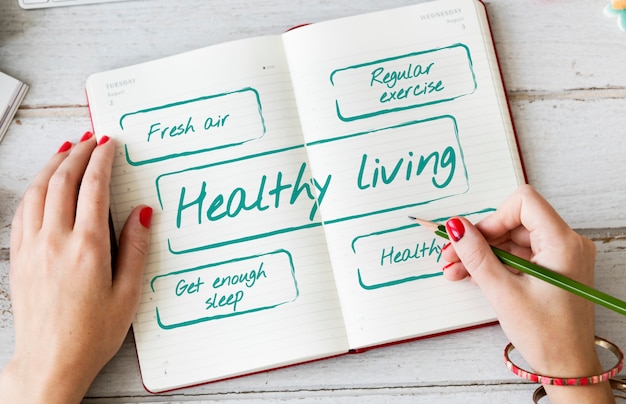
Looking to drop some pounds? You’re certainly not alone. The struggle is real, especially when you don’t have a specific plan in place. It’s easy to get lost in the maze of diet plans and fitness advice and end up feeling frustrated. So, let’s simplify things and focus on the basics.
The Five Pillars
Instead of obsessing over every little piece of advice or diet rule, let’s look at the big stuff – the factors that have the most impact. These big hitters are your diet, exercise routine, rest periods, lifestyle and any supplements you might be taking. Your diet plays the biggest role in this. Just make some changes in what you eat and see the change for yourself.
What’s on Your Plate?
What you eat, how much you eat, when you eat, and even who you eat with, all matter. If you want to see any progress, you should aim to keep these aspects in check. Remember, what works for one person might not work for another, so it’s important to tailor your diet to your needs.
The Basics
Here are some pointers about dieting:
– Eating Style: This is the pattern your diet follows. Maybe you’re a meat-eater, vegetarian, follow a Paleo diet, etc.
– Food Combination: Mix and match foods that go well together.
– Calorie Intake: Keep an eye on how many calories you consume, not because calories are “bad”, but because they are the fuel your body needs to function.
– Macronutrients: The key to a balanced diet are macronutrients – proteins, carbs and fats. You’ll need all three.
– Meal Timing: This is about how often you eat – a few large meals or several small ones, or maybe some fasting protocol.
Balancing Act
Without getting into the gritty details, calories can affect your body in different ways. Having a general understanding of your calorie intake and burning can help in maintaining your ideal body shape. You’re looking for an energy balance that your lifestyle can support. Too many calories could lead to weight gain, whereas too few may result in weight loss.
The Struggle is Real
When it comes to energy balance, achieving a positive (gain weight) or negative (lose weight) balance might be tough, especially with today’s lifestyle which is full of processed foods. It’s not just about the calories, but also about the food quality, physical activity, your awareness about your body and how you deal with the food industry’s advertising tricks.
Crunching the Numbers
Counting calories isn’t the solution, because it’s tough to measure exactly what goes in and out. Instead, check the ingredients list on your food. It’s the quality of the calories that matter, not the number. For example, 100 calories from lean meat is not the same as 100 calories from potato chips.
Watch for Sneaky Calories
Overeating quality foods can add extra calories into your diet without you even noticing. For example, using 2 tablespoons of olive oil three times a day can add around 810 calories and 90 grams of fat. So, be careful and stay mindful of the food you consume and the portions you serve.
Getting the Balance Right
You can achieve a positive energy balance with weight training, liquids with calories like protein shakes, good fats, calorie-dense foods, consistency and good sleep patterns. In contrast, a negative energy balance can be obtained with muscle building, increased daily activity, lean proteins, fruits, veggies, balanced dieting, and by tuning out food adverts.
Being in a state of negative energy (trying to lose weight) or positive energy (trying to gain weight) can be a bit uncomfortable at times – you might notice some hunger, changes in sleep patterns, mood swings and so on. But don’t worry, you don’t need to be at these extremes forever. Once you stabilize your weight, you won’t need such tight control.
That’s it! Let’s keep it simple and practical.
Categories: Weight loss
Tags: Weight Loss, Dieting, Energy Balance, Macronutrients









